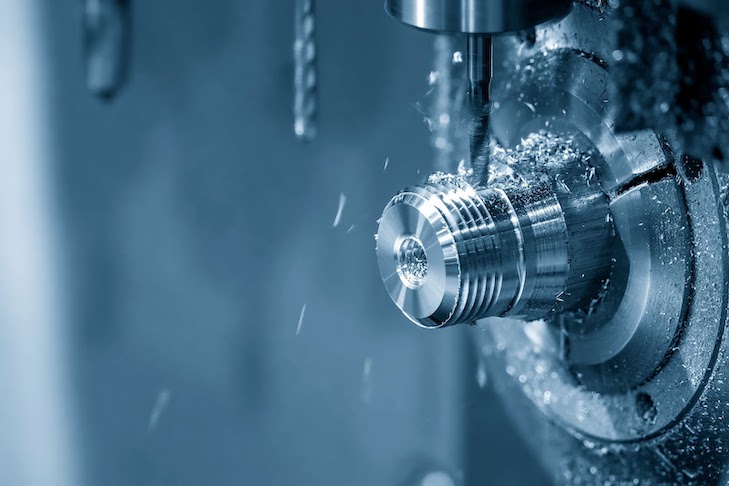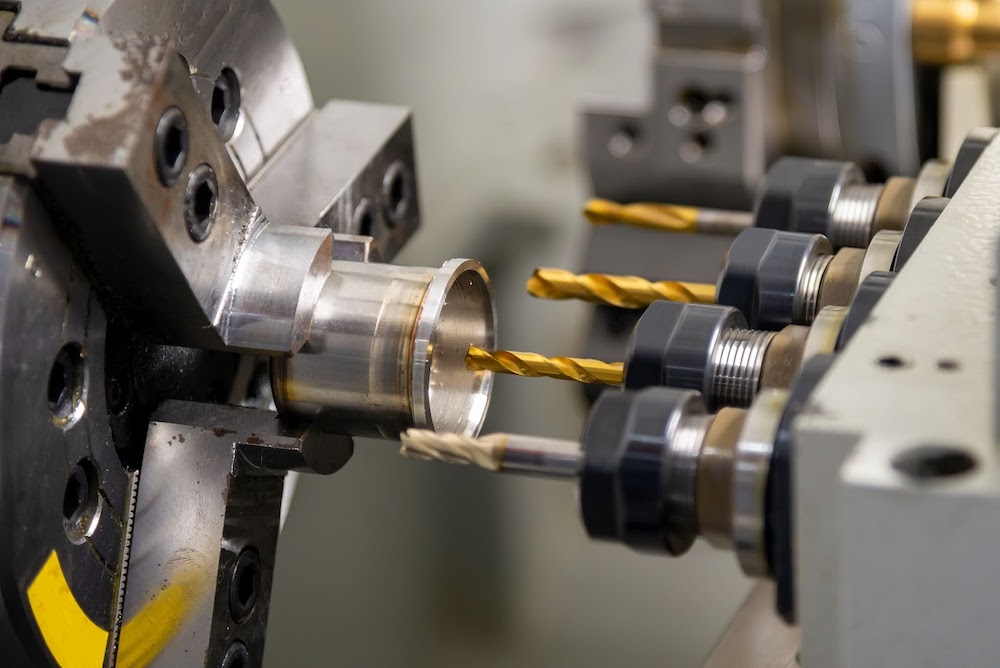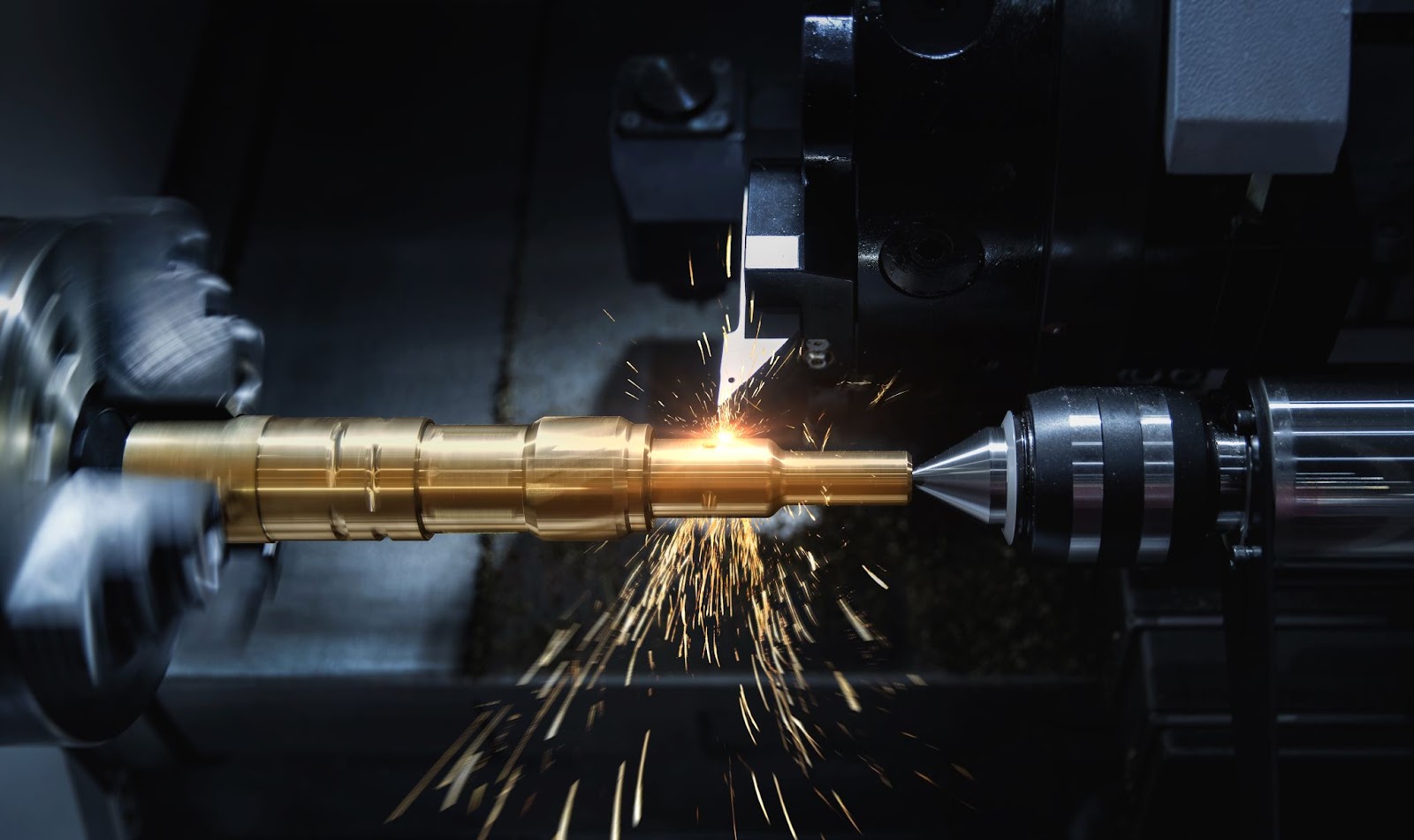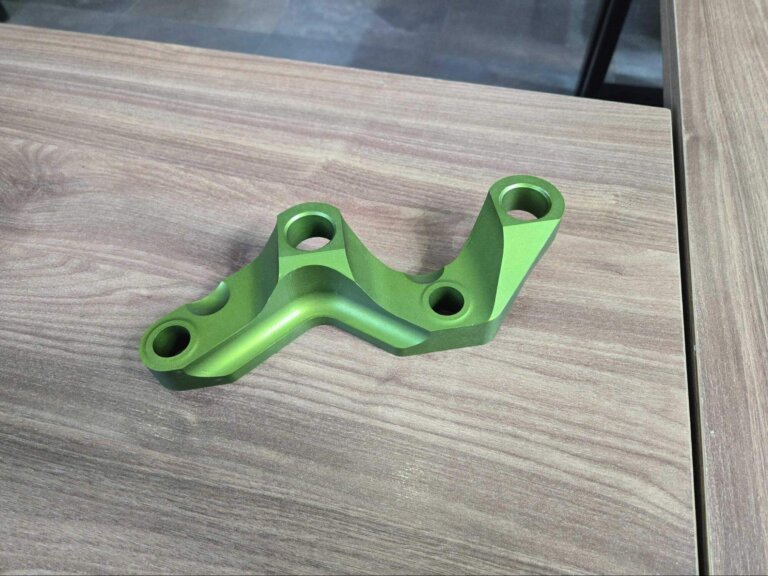Time to read: 6 min

Jacob Schweizer isn’t a household name, but in the engineering world, it should be. It was his desire to build better watches that led to the invention of precision manufacturing equipment now used worldwide. To make watches more portable, he invented the machinery required to build the tiny components that go inside pocket watches and wristwatches. His high-precision machine — which became known as the Swiss machine — opened the doors for producing smaller components accurately because it prevented parts from flexing while being turned.
A Swiss CNC machine, also known as a Swiss-type lathe or a Swiss automatic lathe, is a type of machine tool that is used for the production of small, precision parts in many different industries. These machines are characterized by the small size of their workpieces and high accuracy. The high quality and tight tolerances of parts made with a Swiss CNC machine are hard to match. These parts are often used in the production of parts for the aerospace, medical, and automotive industries, among many others.
What is a Swiss CNC Machine?
A Swiss CNC machine is a type of computer numerical control (CNC) machine tool that is specifically designed for precision manufacturing. Similar to a traditional CNC lathe, a Swiss CNC machine is modified for higher precision when machining small workpieces. It is optimized for the rapid production of small, precise parts and is often used in the watch-making industry, as well as in the production of other high-precision components.

The Swiss CNC machine was originally developed in Switzerland for the watch-making industry, which required a machine that could produce small, complex, and delicate parts with tight tolerances. To achieve this difficult task, Jacob Schweizer modified a traditional lathe — by keeping the cutting tool close to where the workpiece is supported, incredibly tight tolerances were achievable. The Swiss CNC machine is also designed to be able to work with a wide range of materials, including many metals and plastics.
One of the key features of the Swiss CNC machine is its ability to perform multiple operations in a single setup. This allows Swiss machines to produce parts with high levels of efficiency, and to handle complex shapes and features, such as tapers, threads, and contours with a high degree of precision. In addition, Swiss CNC machines can produce parts at high speeds, which makes them ideal for rapid production environments.
How do Swiss CNC Machines Work?
Swiss CNC machines work by feeding bar stock — a long piece of material — through a guide bushing, which is a small metal sleeve that helps align the workpiece and keep it in place while the workpiece is machined.
As the bar stock is fed through the guide bushing and is firmly held in place, the portion being machined is advanced into the tooling area. Securing the material close to the machining operation in this way increases stability and precision. And keeping the workpiece stable near the cutting operation reduces errors and deformation, which results in tighter tolerances on finished parts.
This ability to cut components near the bushings, preventing deformation and flexing of the workpiece, is one of the defining features of Swiss CNC machines. This capability is especially important when working with delicate or slender parts, which are too difficult to machine using traditional methods.
Swiss CNC vs. Traditional CNC
Swiss CNC machines and traditional CNC machines are both types of computer numerical control (CNC) machines that are used to produce parts with high levels of precision and accuracy. However, there are some key differences between the two.

Traditional CNC
With a traditional CNC machine, the lathe rotates the workpiece rapidly in a fixed position. A cutting tool is moved slowly into the workpiece to remove material one layer at a time. One cutting operation can occur at a time in this setup, and water is used as a coolant to keep temperatures under control.
Swiss CNC
Swiss CNC machines, on the other hand, perform multiple operations in a single setup. Whereas traditional CNC machines may require multiple setups in order to complete a part, Swiss CNC machining allows for multiple operations to occur simultaneously in multiple zones.
Swiss CNC machines are typically smaller and more compact than other types of CNC machines. They’re typically equipped with a sliding headstock that allows for the machining of long, slender parts without a large amount of floor space. They also usually have multiple spindles and tool changers, and because the workpiece in a Swiss CNC machine can move along the Z-axis, it can perform a variety of machining operations on a single setup.
Swiss machines are great for manufacturing many different parts ranging from screws to parts with no turned surfaces at all. Oil is often used as a coolant for Swiss machines to keep the workpieces cool and extend the cutting tool life. The ability to process the workpiece along the Z-axis and reduce setups saves time and increases the accuracy of the part.
Benefits of Swiss CNC Machining
Swiss CNC machining is a precision manufacturing process that offers a number of benefits over other machining methods. One of the main benefits of Swiss CNC machining is the ability to achieve extremely tight tolerances on finished parts — within 0.0001 inches.
Another benefit of Swiss CNC machining is its versatility in terms of part size and materials. Swiss CNC machines are able to work with diameters ranging from 0.030 inches to 2 inches, and can handle a wide range of materials, including Inconel, nickel, steel, and titanium.
Swiss CNC machines are able to handle thinner walls, deeper cuts, slender parts, and delicate features with a high degree of accuracy, making them ideal for the production of complex components.
In addition to their precision and versatility, Swiss CNC machines are known for their rapid pace of production — since they can perform multiple operations in a single setup — which increases efficiency and results in cost savings over the long term.
Where is Swiss CNC Machining Used?
Swiss CNC machining is a precision manufacturing process used in a variety of industries to produce small, precise parts with tight tolerances. These industries include:
Automotive
Swiss CNC machining is often used in the automotive industry to produce a range of components, including shafts, fuel systems, and engine components. The precision and efficiency of Swiss CNC machining make it an ideal choice for the production of high-quality automotive parts, including:
- Suspensions: springs, shock absorbers and control arms
- Wheels: rims, hubs, and bearings
- Brakes: brake pads, rotors, and calipers
- Transmissions: shafts, bearings, and gears
- Engines: fuel injectors, valve lifters, and camshafts
- Exhaust and fuel systems: catalytic convertors, mufflers, fuel pumps, and fuel lines
- Electrical systems: connectors, terminals, and wire harnesses
Medical
Swiss CNC machining is widely used in the medical industry to produce medical devices, precision imaging equipment, and surgical screws. The high levels of accuracy and reliability of Swiss CNC machining make it an essential tool for the production of precision medical components, where tolerances are critical. Swiss CNC machines are commonly used to produce medical components such as:
- Implants: joint replacements, spinal implants, and dental implants
- Surgical instruments: scalpels, forceps, and scissors
- Orthopedic devices: braces, splints, and supports
- Dental prosthetics: crowns, bridges, and dentures
- Ophthalmic devices: eyeglasses, contact lenses, and intraocular lenses
Electronics
Swiss CNC machining is also used in the electronics industry to produce a range of components, including connectors, switches, and screws.
Swiss CNC Machining: When Tight Tolerances Are Required
Overall, Swiss CNC machines are highly specialized machines that produce small, precision parts for a wide range of industries. They’re known for their high accuracy and repeatability, and are an essential tool in the production of many high quality products.
Swiss CNC machines have come a long way from their watchmaking roots. Swiss CNC machines have enabled the production of the small, complex, and precise parts required by many of the machines and products we use in daily life. When it comes to producing small parts with complex geometries, Swiss CNC machines can’t be beaten.
Sourcing Simplified – Start Your Next Project With Fictiv
For all your CNC machining services (Swiss or otherwise) and finishing needs, Fictiv has you covered. We’re experts at producing custom CNC machined tight tolerance parts, in a variety of materials, and we simplify custom part sourcing with intelligent, streamlined, automated workflows. Fictiv is your operating system for custom manufacturing that makes part procurement faster, easier, and more efficient.
Create an account and upload your part to see what our instant quote process, design for manufacturability feedback, and intelligent platform can do for you.










